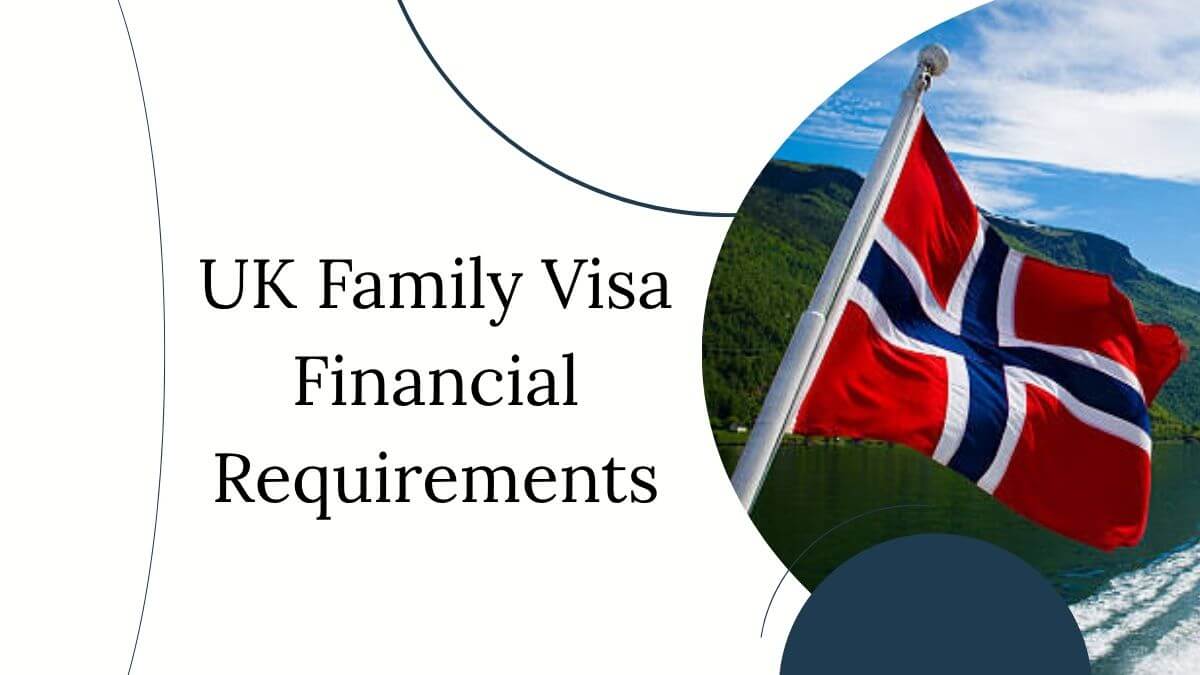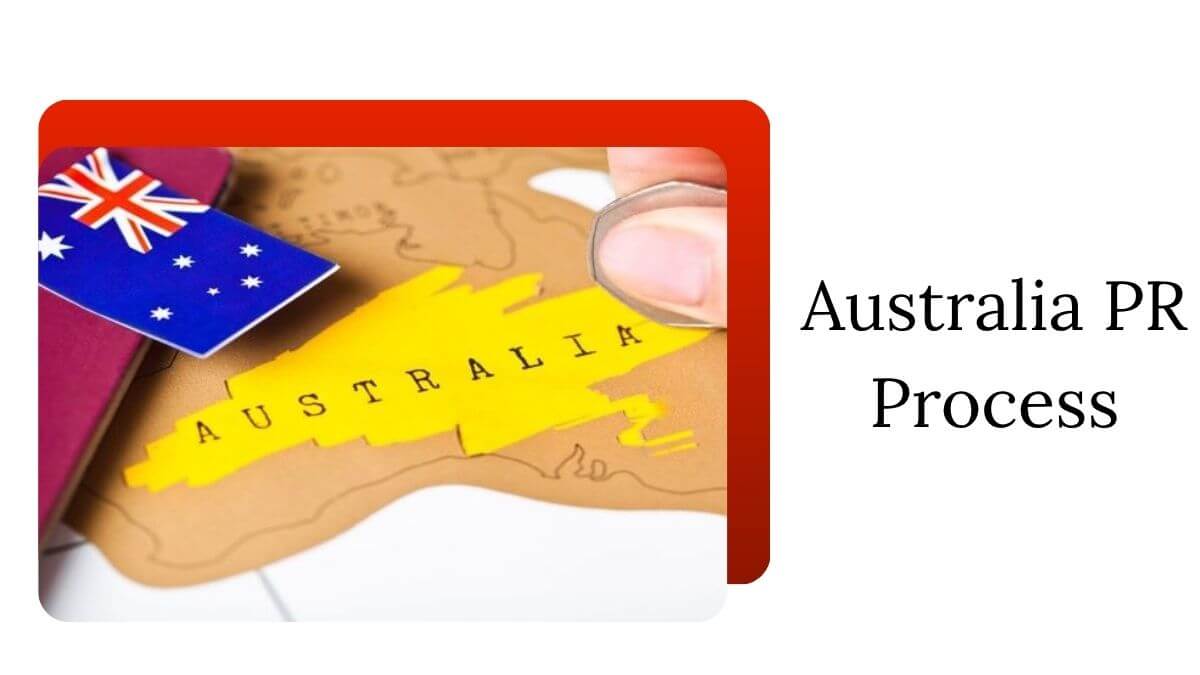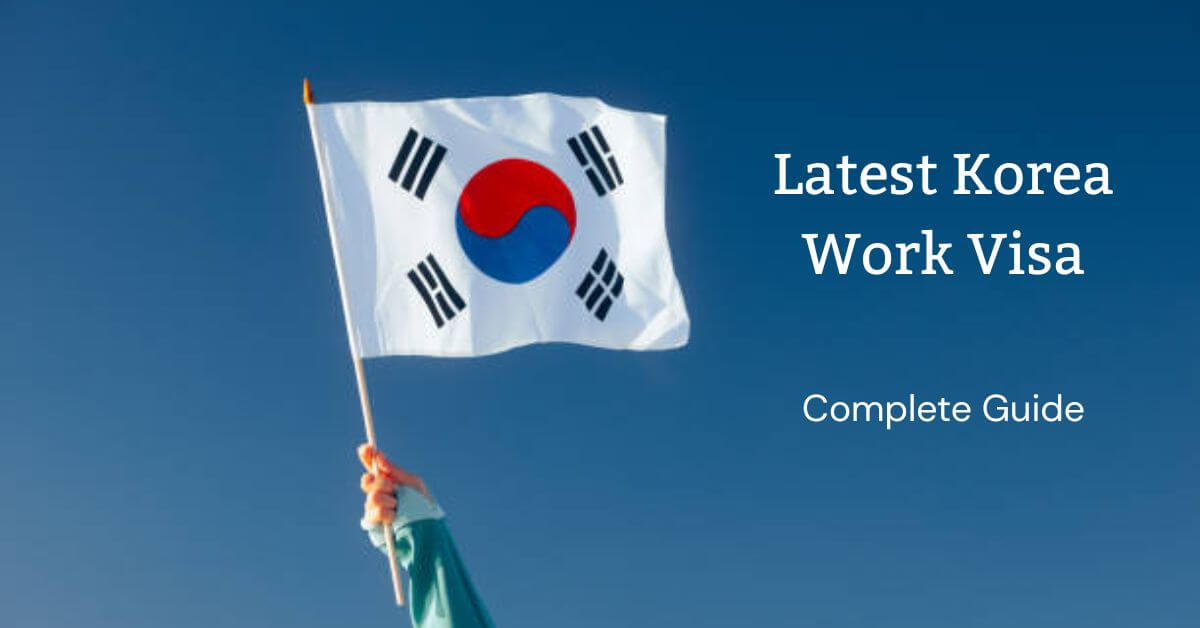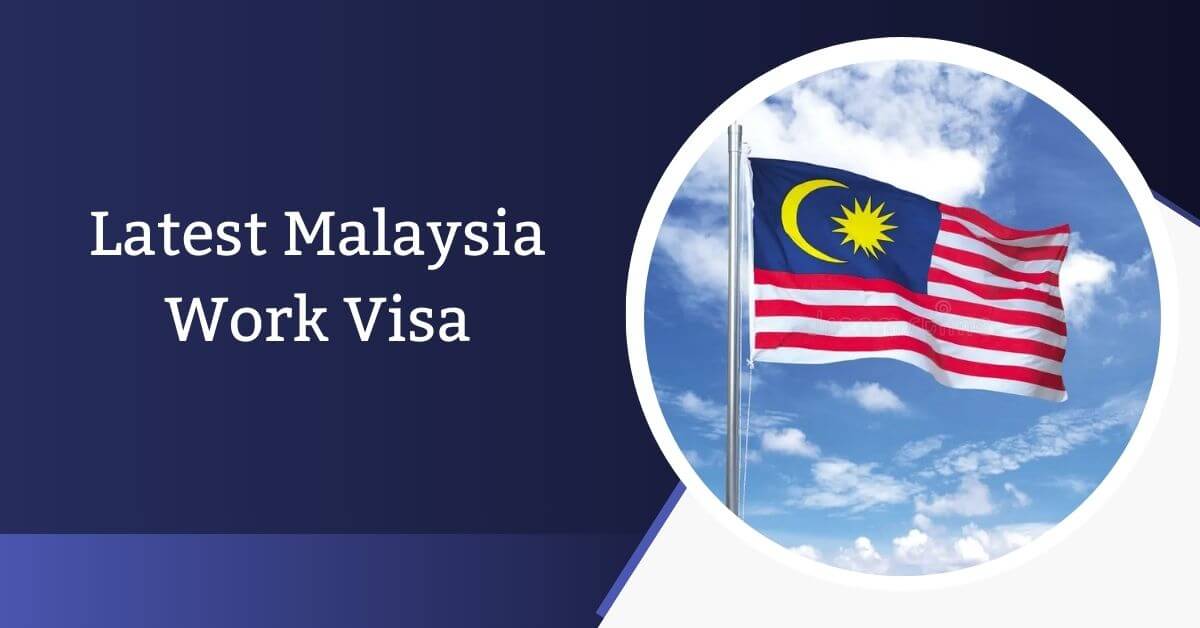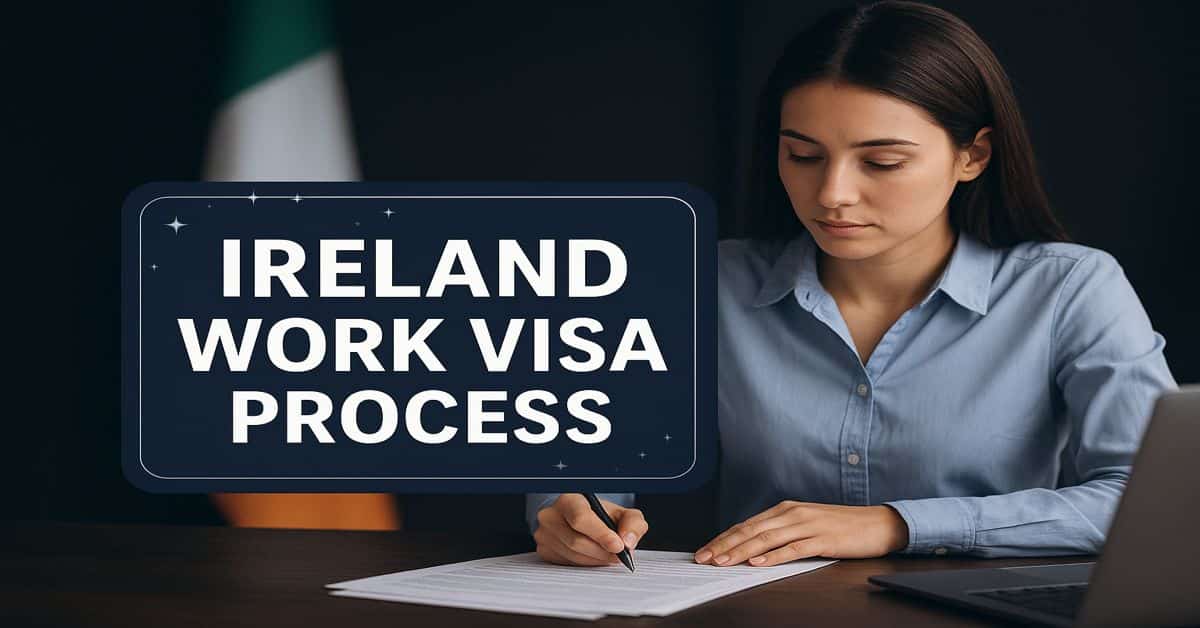
Ireland Work Visa Process – Application Process
The country has made Ireland one of the most desirable places to work in. Ireland, with its booming economy, high standard of living, and good employment prospects in fields such as information and technology, medicine, engineering and finance sector, presents foreign employees with an opportunity of having stable careers.
A foreigner who wants to work in Ireland must usually have a work visa, which is tied to work permits. The Ireland work visa procedure will require various procedures including getting an employment offer and registration of appropriate permit and finally the issuance of the visa to get into the country. This is a step-by-step breakdown of the whole process.
Ireland work visas:
The phrase work visa is generally used in Ireland to mean permission granted to a foreign national to come into the country to work, although it is closely associated with employment permits granted by the Department of Enterprise, Trade, and Employment. A visa application cannot be completed without the proper permit. Citizens of other countries (not belonging to the European Union (EU) or the European Economic Area (EEA)) usually need a work permit as well as a visa.
Irish Work Permits:
Different job types have various kinds of employment permits provided in Ireland. The main types include:
- Critical Skills Employment Permit – In super skilled jobs like healthcare, IT, and engineering. It also targets qualified workers in positions that are sought after in Ireland.
- General Employment Permit – Covers a broad scope of employment that is not listed herein in the Critical Skills list. This alternative can enable the foreign employees to seek employment opportunities when there is no appropriate candidate in the EU/EEA.
- Intra-Company Transfer Permit – For employees who are moving out of a multinational corporation overseas and into its branch in Ireland.
- Contract for Services Permit – For employees engaged under agreement with a foreign company to carry out services to an Irish customer.
- Other Specialized Permits – e.g. dependents, spouse/partner of permit holder, sports/cultural employment permits.
Eligibility Criteria:
The conditions under which one is eligible vary under the type of employment permit one is seeking but generally the following conditions are required:
- An agreed employment opportunity by an employer in Ireland.
- The employment opportunity must be in accordance with the Irish government wage floor standards. As an example, Critical Skills Employment Permits tend to have higher minimum salaries than General Employment Permits.
- Evidence that the employer has followed labor market requirements, e.g. labor market testing where applied with respect to General Employment Permits.
- Applicable qualifications, experience and abilities applicable to the position being offered.
- The criminal record and evidence of good character are clean.
- Medical suitability to work in Ireland.
Check Also: Greggs Ireland Shopkeeper Supervisor Jobs With Sponsorship
Requirements:
The following requirements are mandatory to apply the work visa:
- Valid and adequate passport.
- Permission to work given by the Irish Government.
- Online application of visa application form.
- Guideline size photos.
- Proof of payment of visa fee.
- Letter of employment contract or letter of official job offer.
- Evidence of reasonable financial resources that would allow them to make ends meet in Ireland.
- Indication of accommodation arrangements.
- Evidence of medical insurance cover.
- Police clearance certificate.
- Can be in the form of supporting educational and professional documents, like degrees, diplomas, work experience certificates, etc.

Application Process:
Follow the steps below to get your Ireland work visa
Step 1: Secure a Job Offer
The initial one entails securing an employment opportunity with an employer in Ireland. An employment permit or a work visa cannot be applied without being offered a job.
Step 2: Get an Employment Permit.
When a job opportunity is obtained, either the employer or the employee applies to the Department of Enterprise, Trade and Employment to obtain the employment permit in question. Necessary paperwork, including employment agreement, job description, salaries, and evidence of qualifications, are provided. Depending on the type of permit, the time to be processed can be spanned over a long period of time but usually an application is processed within a couple of weeks.
Step 3: Get the Decision on the Employment Permit.
In case the permit to work is granted, the applicant will be officially informed. This is a very important move since without the permit a work visa cannot be applied. On refusal, the applicant can either appeal or apply again.
Step 4: Apply for the Work Visa
The applicant then makes an online application at the Irish Naturalisation and Immigration Service system to obtain the visa having the employment permit. Additional documents like passport, employment permission, job contract, and evidence of funds are uploaded and submitted. The application should be supplemented with an appropriate visa fee.
Step 5: send Biometrics and supporting documents.
A few applicants are probably requested to visit a visa utility center so one can provide biometrics like fingerprints and photos. documents can also be validated by means of filing hard copies.
Step 6: Wait for Processing
Depending on the country of residence of the applicant and the workload of the visa processing office, visa processing can require several weeks. Well before the start of the employment date, it should be applied.
Step 7: receive Visa selection
The applicant is then issued a visa decal within the passport as soon as the software has been authorized. This visa allows one to gain entry to Ireland to work.
Step 8: Visit Ireland and Register.
On arrival in Ireland, visa holders are required to register with Garda National Immigration Bureau (GNIB) in order to receive a residence permit card. This card validates the right of the holder to legally live and work in Ireland.
Period and Extension of Ireland Work Visa:
The work visa will last depending on the employment permit category. Critical Skills Employment Permits have a validity of two years after which an individual can seek long-term residency. GPs are typically given a term of two years and may be extended to three years. Visa holders can also seek long-term residence after five years of legal residence in Ireland or even citizenship, as long as they are eligible.
Common Challenges:
- Formidable criteria in getting select permits.
- Sometimes long processing times.
- Labor market testing requirement on general permits which can be a constraint.
- The requirements of high salaries of Critical Skills permits.
Ireland Work Visa for Non-EU Citizens:
If you are a non-EU citizen, you need an Ireland work visa to legally work in the country. The visa allows you to live and work in Ireland for a specific employer and under certain conditions.
Key Requirements:
- Valid passport
- Job offer from an Irish employer
- Relevant qualifications or experience
- Proof of meeting Ireland work visa rules and regulations
Ireland Work Permit Application Process:
The first step is submitting an Ireland work permit application. Ireland offers different types of employment permits, and your eligibility depends on your job role and skills.
Types of Ireland Employment Permits:
- General Employment Permit – For occupations where there is a labor shortage but not necessarily highly specialized roles.
- Critical Skills Employment Permit – Designed for highly skilled workers in sectors like IT, engineering, healthcare, and finance.
General Employment Permit vs. Critical Skills Employment Permit:
- General Employment Permit: More flexible, but may require a labor market needs test (proving no EU/EEA citizen can fill the role).
- Critical Skills Employment Permit: Faster processing, higher salary thresholds, and a clear pathway to residency.
Ireland Skilled Worker Visa Process:
For skilled professionals, the Ireland skilled worker visa process typically involves:
- Securing a qualifying job offer.
- Employer applies for an employment permit on your behalf.
- Once approved, you apply for the visa at the Ireland embassy, scheduling your work visa appointment.
- Receive your visa and travel to Ireland to start work.
Ireland Immigration Work Visa Process:
The broader Ireland immigration work visa process includes:
- Obtaining the right employment permit
- Applying for the visa from your home country
- Registering with local immigration authorities upon arrival
- Adhering to visa conditions such as permitted work hours and employer restrictions
Pathway from Ireland Work Visa to Residency:
Many non-EU workers wonder how to move from an Ireland work visa to permanent residency. Here’s the typical route:
- Work in Ireland under a Critical Skills Employment Permit for 2 years.
- Apply for long-term residency (Stamp 4), allowing you to live and work without an employer restriction.
- After 5 years of legal residence, you may qualify for citizenship.
Ireland Work Visa vs. EU Blue Card:
While the EU Blue Card allows high-skilled workers to work across EU countries, Ireland does not participate in the EU Blue Card program. Instead, non-EU workers rely on employment permits. Knowing this distinction is crucial when planning your career in Ireland.
Tips:
- Double-check that your job aligns with recognized critical skills.
- Ensure all documents are accurate and complete.
- Schedule your Ireland embassy work visa appointment early to avoid delays.
- Keep track of deadlines and renewals for your employment permit.
By understanding the Ireland work visa rules and regulations, you can navigate the process confidently and start your journey to working and living in Ireland.
Conclusion:
Ireland’s work visa process offers skilled professionals competitive salaries, flexible work options, and clear pathways to long-term residency or citizenship. By securing a job offer, obtaining the right permit, and following the visa steps carefully, applicants can build stable, rewarding careers in Ireland. Despite a few challenges, the country’s booming economy and quality of life make it one of the best destinations to work and live.
Frequently Asked Questions:
What is the minimum salary required for an Ireland work visa?
The minimum salary depends on the type of employment permit. Critical Skills Employment Permits generally have higher salary thresholds compared to General Employment Permits.
Can I bring my family with me on a work visa?
Yes, most work visa holders can bring their dependents and immediate family members, subject to certain conditions.
Do I need a job offer to apply for a work visa?
Yes, a confirmed job offer from an Irish employer is mandatory to apply for both the employment permit and the work visa.
